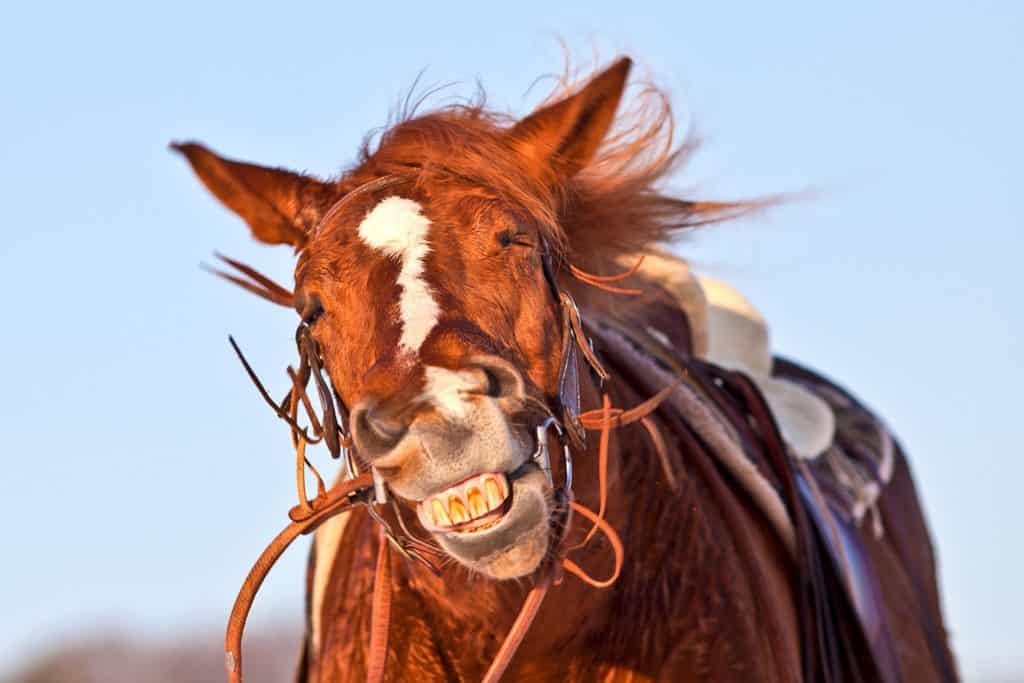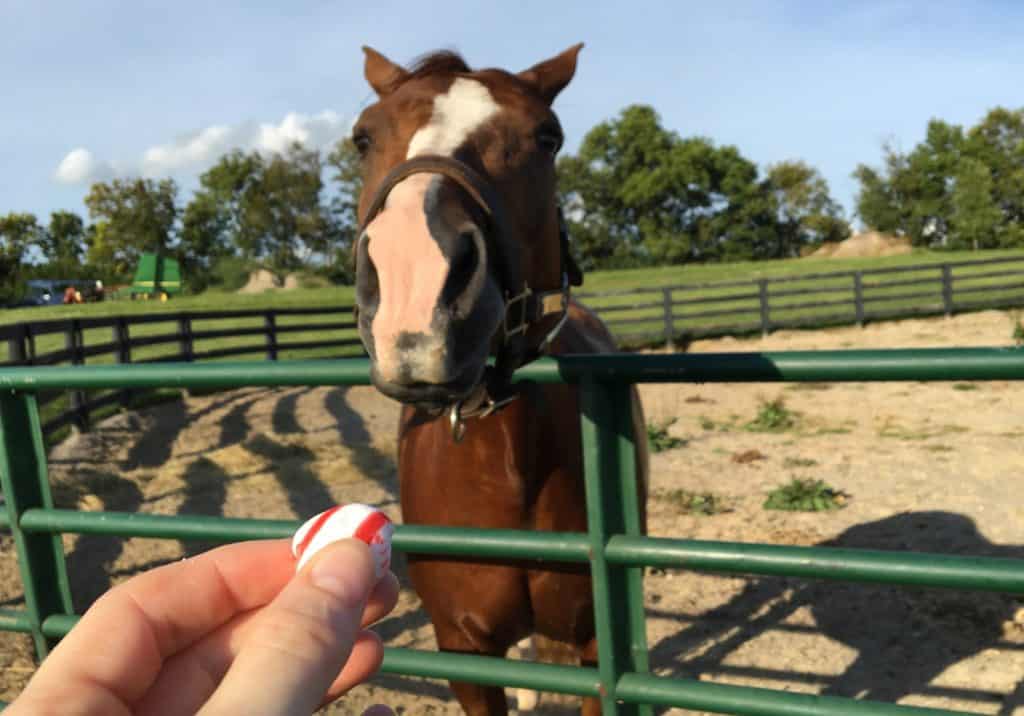
Keeping the Aging Horse Comfortable
Here’s how to manage senior horses’ aging teeth, joints, lungs, and more.

Here’s how to manage senior horses’ aging teeth, joints, lungs, and more.

Clostridial myositis is a rare but serious bacterial infection, which causes inflammation and death of muscle and release of bacterial toxins into the bloodstream.

Do grazing muzzles cause stress or alter social behavior? Researchers tested a group of Miniature Horses to find out.

Aging for horses means strength and flexibility diminish, as well as the body’s ability to handle infection. Still, there are steps owners can take to keep senior horses happy and healthy.

Staff from the UK Horse Pasture Evaluation program recently observed ergot bodies in tall fescue pastures on several Central Kentucky horse farms. Here’s what to watch for.

Buttercups in horse pastures can cause problems, but their acrid taste usually deters livestock from grazing. Here’s what to know.

Scientists recently tested a noninvasive, wireless, wearable device that allows veterinarians to monitor heart function, sounds and murmurs, and more while the horse remains free to move around his normal surroundings.

What does it mean if you find corn in your corn-free horse feed? Our nutritionist explains how mills are cleaned and how it can affect your horse’s health.

Nearly half of the European feed samples researchers analyzed had levels of pyrrolizidine alkaloids—naturally occurring, potentially toxic organic compounds—that were higher than the accepted maximum tolerated levels, they said.

Cargill is voluntarily expanding its livestock and horse feed recall due to elevated aflatoxin levels. The original recall was initiated May 6.

Some severe headshaking cases that are resistant to existing treatments and can significantly compromise a horse’s quality of life. But researchers have recently determined that a supplementation regimen could help.

Researchers found that the only factor associated with a decreased risk of squamous cell carcinoma (or SCC, the most common ocular tumor in horses) recurrence was use of a fly mask with 90% or more UV light protection.

What are aflatoxins, how do they end up in livestock feed, and are they dangerous to horses? Our equine nutritionist explains.

Will giving my horse peppermints offset the hard work we’re doing to help her lose weight?

When a horse spikes a fever without the nasal discharge and other respiratory signs you’d expect to see with an infectious disease, the potential causes could be vast. In some parts of the country, a tick-borne disease could be a culprit.

Cargill is voluntarily recalling Southern States Triple 10 horse feed and other select livestock feeds due to elevated aflatoxin levels.
Stay on top of the most recent Horse Health news with
"*" indicates required fields